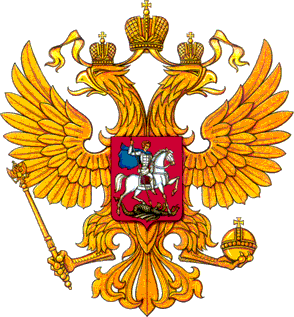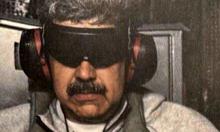Muslims intend to take Orthodox symbols off Russia's State Emblem
It is worthy of note that there are up to two million Muslims living in Moscow alone
Orthodox symbols on the Russian National Emblem gave rise to a religious dispute in Russia. The majority of Muslim leaders and scientists say that Russia should remove Orthodox symbols from the Emblem. The central image of the Emblem depicts the Orthodox Saint, Georgy Pobedonosets (Victorious Georgy), slaying a dragon. Crowns with Christian crosses adorn the heads of double eagles. Another cross can be seen on the orb, which one of the birds holds in its claws. 
Russia is a secular multi-confessional state. The State Emblem of Russia should therefore reflect the variety of nations living on the territory of the country. According to the results of the latest population census, up to ten percent of Russians practice Islam. Islamic figures have recently urged the Russian government to pay attention to the issue of Orthodox symbolism on the National Emblem, for it could be referred to as a violation of human rights.
”It is not only the matter of the Russian State Emblem. They put up crosses on frontier posts and city entrances, Orthodox icons can be seen hanging on office walls. All these facts, which include sending Christian symbols into space, assigning Christian icons to Russian troops, missile troops in particular, the presence of four large crosses on the Emblem testify to a certain pressure of Christian symbolism in the country,” the chairman of the spiritual administration of Russian Muslims, Nafigullah Ashirov said. “Let us build mosques, synagogues, Catholic churches and pagodas everywhere and make it all look absolutely absurd,” the clergyman said.
”Muslims raise this subject every now and then. Muslim police officers in Dagestan, for example, may erase Christian crosses off cockades. Christian symbols, which can be found on certain elements of the Russian military uniform, contradict to their beliefs and religion. No one has touched upon this question before, but this problem exists,” Ashirov said in an interview with Echo of Moscow radio station.
Ashirov does not think that state symbols should display the signs of a particular religious confession. “The Russian Federation Constitution defines Russia as a secular state. One should therefore avoid any religious symbols in state emblems. Religion is a private matter. One should not promote the Christian religion on the state level,” the official said.
”If President Putin says that Russia is a Christian, Muslim and secular state at one and the same time, it should be so in reality. Otherwise, the government needs to change the Constitution and pronounce Russia a Christian state,” Ashirov believes.
It is worthy of note that there are up to two million Muslims living in Moscow alone. The total number of those following Islam is estimated at some 20 million in Russia.
The Russian State Emblem displays monarchic symbols of the Russian empire, academician Valeria Porokhova believes (Porokhova translated Quran into Russian). “Modern Russia is a secular state indeed. The presence of Christian symbols can't help hurting Muslims' feelings at this point,” the scientist said.
”There are no Orthodox symbols on the State Emblem of Russia. The Orthodox cross has eight ends, although the crosses on the Emblem represent the general cultural value,” Russia's chief specialist of heraldry, Georgy Vilinbakhov said. As for Victorious Georgy affecting a dragon, it is an ancient pre-Christian, pagan symbol, which was associated with Christianity historically.
The Russian population counts about 144 million people. There is no official statistics on the percentage of people practicing various religions, although over 50 percent of Russians call themselves Orthodox Christians. The number of Muslims in Russia approximately makes up 14 percent of the entire population. Protestants make the third largest religious group in Russia, although this information does not have an official confirmation. About 600,000 Russians practice Judaism. Buddhism is the traditional religion in Buryatia, Tuva and Kalmykia republics with up to two million followers.
Discuss this article on Pravda.Ru ENGLISH FORUM
Subscribe to Pravda.Ru Telegram channel, Facebook, RSS!




